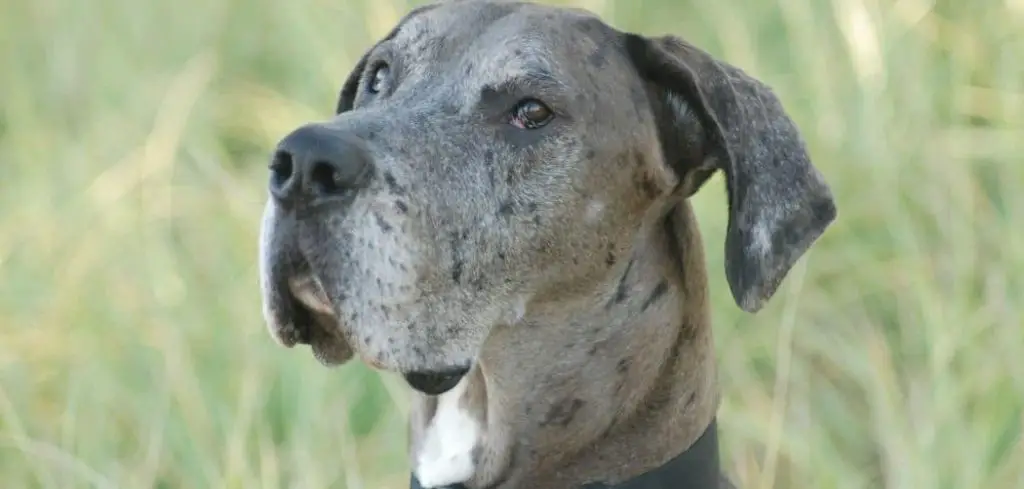Noticing a senior dog eating grass excessively can be concerning for any pet owner. While occasional grass eating is fairly common in dogs, when it becomes frequent or obsessive in older dogs, it may point to underlying health or behavioral issues that should not be ignored.
We outline the common reasons why a senior dog may eat grass excessively, what you can do, and when to seek veterinary help.
Senior Dog Eating Grass Excessively — Why It Happens
Senior dogs may eat grass excessively for a mix of physical, medical, and behavioral reasons. Some do it to soothe an upset stomach or relieve nausea, while others may use it as a natural instinct to help digestion. Age-related conditions such as gastrointestinal disease, nutrient deficiencies, or even cognitive decline can trigger repetitive grass eating.
Stress, boredom, or anxiety may also contribute, especially in older dogs adjusting to changes in their routine or health.

Senior Dog Eating Grass Excessively: Common Causes
Gastrointestinal Upset
A common reason for a senior dog eating grass excessively is stomach discomfort. Dogs may instinctively consume grass to help induce vomiting when they feel nauseous or have something irritating their digestive tract.
In senior dogs, gastrointestinal upset could be related to slower digestion, dietary sensitivities, or chronic conditions such as gastritis.
If grass eating is followed by vomiting, lethargy, or loss of appetite, it can signal that the issue is more than a simple stomachache.
Read more: Dog Eating Grass Frantically Middle of Night (Here’s Why)
Nutritional Deficiencies
As dogs age, their bodies may not absorb nutrients as effectively as before. This can lead to deficiencies in fiber, vitamins, or minerals.
Some senior dogs may turn to grass as a source of roughage or to compensate for what they’re missing in their diet.
While grass may provide some fiber, it doesn’t replace a balanced senior diet. If an older dog is persistently drawn to eating grass, it could be their way of indicating a need for dietary adjustments or supplementation.
Cognitive Dysfunction (Canine Dementia)
Cognitive dysfunction in dogs, similar to dementia in humans, can lead to unusual or repetitive behaviors.
A senior dog may eat grass excessively out of confusion, anxiety, or changes in brain function.
This behavior often accompanies other signs such as disorientation, restlessness at night, or changes in interaction with family members. In these cases, grass eating may not serve a functional purpose but instead reflect age-related changes in the brain.
Gastrointestinal Disease
Chronic conditions such as inflammatory bowel disease (IBD), pancreatitis, or intestinal parasites can cause persistent stomach discomfort.
Senior dogs with these conditions may excessively eat grass as a way to self-soothe.
Owners may also notice recurring diarrhea, vomiting, weight loss, or decreased appetite alongside the grass-eating behavior. Because these diseases require veterinary management, ongoing or severe grass eating should not be dismissed.
Anxiety or Stress
Older dogs can develop anxiety from changes in their environment, reduced mobility, or the loss of familiar routines. Grass eating can become a self-soothing mechanism when they feel stressed.
If the behavior seems to intensify during thunderstorms, fireworks, or separation, anxiety may be at the root. Senior dogs are particularly vulnerable to stress when health changes limit their ability to cope as they once did.
Habit or Learned Behavior
Some dogs simply develop the habit of eating grass throughout their lives, and this may continue into their senior years. However, if the behavior becomes more frequent than in the past, it may indicate a new underlying issue.
Differentiating between habit and medical cause often depends on whether new symptoms appear alongside the grass eating.
What to Do If Your Senior Dog Is Eating Grass Excessively
At home, make sure your dog’s diet is balanced and appropriate for senior dogs. High-quality senior dog food often contains added fiber and nutrients that support aging bodies.
Providing regular meals, along with fresh water, helps minimize gastrointestinal discomfort that may drive grass eating.
Monitor their environment to ensure the grass they access is safe and free from pesticides, herbicides, or toxic plants. Redirecting them with safe chew toys or treats can help if the behavior seems driven by habit or boredom.
Engaging your senior dog in gentle exercise, interactive toys, or calming activities can reduce anxiety-driven grass eating.
If dietary or environmental adjustments don’t reduce the behavior, it may be time to consider medical causes.
When to Call or Visit Your Vet
If your senior dog eats grass excessively and shows additional symptoms, veterinary attention is essential.
Signs such as vomiting, diarrhea, weight loss, reduced appetite, or lethargy should never be ignored in older dogs.
Frequent grass eating followed by vomiting is a red flag for gastrointestinal disease or other underlying health problems.
Similarly, if the behavior seems obsessive or paired with confusion, it could point to cognitive dysfunction that requires medical management.
Any sudden change in a senior dog’s eating habits, especially when paired with other symptoms, should be discussed with a veterinarian to rule out serious health conditions.
Read more: Dog Eating Grass Excessively (Here’s Why)
Key Takeaway
A senior dog eating grass excessively can be a sign of anything from mild digestive upset to more serious medical or behavioral conditions. While occasional grazing may not be alarming, frequent or obsessive grass eating should be carefully monitored.
Providing a balanced diet, addressing anxiety, and ensuring safe outdoor access are important first steps. However, veterinary evaluation is crucial if the behavior is accompanied by other concerning symptoms.
By staying observant and proactive, you can help ensure your senior dog remains comfortable, healthy, and supported in their later years.
